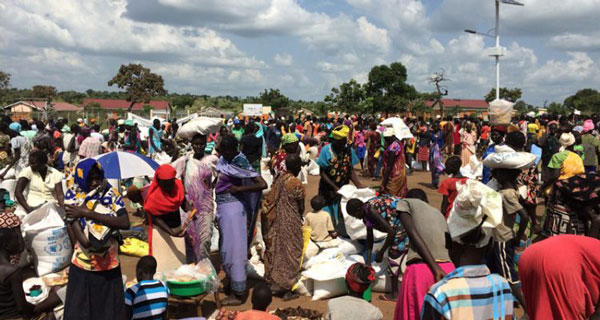
Kampala, Uganda | THE INDEPENDENT | The number of suicides and suicide attempts among South Sudanese refugees living in settlements in Uganda more than doubled in 2019 compared to the previous year, according toUNHCR, the UN Refugee Agency. There were 97 suicide attempts, with 19 deaths during the year.
The agency observes that although suicide is also a common issue in the general population in northern Uganda, the increase among refugees in places like Bidibidi illustrates a growing problem: the dire need for mental health-care services for people who have fled crisis, lost support networks and struggled to make a living in their country of asylum.
More than two million South Sudanese, most of them women and children, have fled their homeland to escape a brutal conflict between the government and opposition parties. A sizeable majority of them live in settlements within Uganda.
Many of them have witnessed or experienced attacks, gender-based violence, sexual abuse, and torture either at home or during their escape. They are depressed, and surrounded by misery, agony, anger extreme poverty and lack of meaningful life after decades of brutal wars, multiple displacements, epidemics, deprivation and generations of untreated trauma.”
Such traumatic events have been cited as the key triggers of suicide attempts and actual suicide in refugee settlements, yet there are just a few suicide prevention programmes.
In one of the incidences, 42-year-old Adam, a father of five, told UNHCR that his wife, Mary, was diagnosed with bipolar disorder in 2012 in South Sudan’s Yei town. Mary’s condition worsened after they arrived in Bidibidi settlement in September 2016. On a sunny June day, Mary told Adam she was going to her brother’s home, but she never made it there. A neighbour found her hanging from a mango tree the following day.
“My wife could not accept the fact that she was no longer able to cook, look after the crops and sweep the courtyard. She could not bear the persistent tiredness,” Adam said.
“She did not have any friends here to share her feelings and worries. Our neighbours did not want to deal with us because of my wife’s mental problem. I think that’s what broke her deep inside,” he added.
UNHCR and its partners secured only 40 percent of the USD 927 million needed to assist refugees and host communities in Uganda in 2019. With such limited funding, organizations delivering mental health and psychosocial support reached only 29 percent of South Sudanese refugees in need of such services and even a smaller percentage of local community members.
A 2018 joint assessment by UNHCR and partner organizations found that 19 percent of refugee households in northern Uganda reported at least one family member suffered psychological distress or felt afraid. Fewer than half of the respondents said the affected family member had access to psychosocial care, such as individual counselling, group therapy and meditation.
One of the organization’s providing much-needed care is a local non-governmental organization, Transcultural Psychosocial Organization (TPO), run with support from UNHCR. The organization reached 9,000 refugees and local Ugandans in and around Bidibidi settlement last year, counselling them on how to manage negative thoughts, engage in social activities and reach out for help.
It also ran programmes to help eliminate the stigma associated with mental health, trained health-care providers and deployed community-based counsellors.
But UNHCR fears that with a grim outlook for 2020 funding, it will be impossible to support effective mental health programmes – or even identify who needs help – without more money from governments, the private sector and other donors.
******
URN
 The Independent Uganda: You get the Truth we Pay the Price
The Independent Uganda: You get the Truth we Pay the Price





